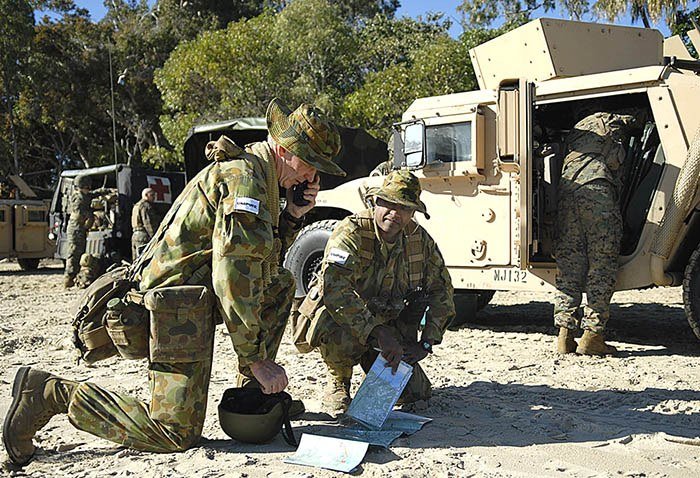Australia: open letter to Prime Minister Scott Morrison on interpreter protections
Members of the Australian Defense Force | Credit: Nardelito Gervacio
February 2020
The Hon. Scott Morrison MP
Prime Minister
Department of the Prime Minister and Cabinet
PO Box 6500
Canberra ACT 2600
Australia
Re: A Humanitarian Promise
Dear Prime Minister,
Before we focus on the reason for this letter, the undersigned international translator and interpreter associations, together with our human rights partners, would like to express our profound sorrow at the loss of life and the devastation wrought by the bushfires in your country.
With that in mind, we write to alert you to another tragedy, namely, the fate of a small group of approximately 60 Iraqi interpreters who never know if they will see another day due to their service with the Australian Defence Force. The situation in Iraq is dangerous and volatile, with continuing state and paramilitary violence, and linguists face the ongoing threat of death. In fact, armed actors have identified them as high-priority targets who must be eliminated.
Your country has established a policy of granting protective visas to locally recruited employees, among them interpreters. On closer inspection, however, there is an insurmountable challenge regarding its implementation: the Australian embassy in Baghdad does not accept visa applications and refers applicants to the embassies in Amman, Jordan, or Beirut, Lebanon. As you can imagine, crossing war-torn and militia-held territories exposes them to physical risk as well as burdens them with prohibitive costs.
Thus, while Australia’s humanitarian commitment is laudable in spirit, the current travel requirement renders it unfeasible in practice. We urge your administration to set up a temporary visa processing unit in the Baghdad embassy so that visa applications can be submitted locally, without undue hardship, or find a viable alternate solution.
We thank you for your consideration and hope it will lead to a facilitated resettlement process for your country’s dedicated linguist allies.
Sincerely,
Maya Hess, President, Red T
Linda Fitchett, Chair, Conflict Zone Group, International Association of Conference Interpreters (AIIC)
Kevin Quirk, President, International Federation of Translators (FIT)
Aurora Humarán, President, International Association of Professional Translators and Interpreters (IAPTI)
Angela Sasso, President, Critical Link International (CLI)
Christopher Stone, President, World Association of Sign Language Interpreters (WASLI)
Maurizio Viezzi, President, Conférence Internationale Permanente d’Instituts Universitaires de Traducteurs et Interprètes (CIUTI)
Loredana Polezzi, President, and the Executive Council, International Association of Translation and Intercultural Studies (IATIS)
Lucio Bagnulo, Head of Translation, Language Resource Centre, International Secretariat, Amnesty International
Betsy Fisher, Director of Strategy, International Refugee Assistance Project (IRAP)
Simona Škrabec, Chair, Translation & Linguistic Rights Committee, PEN International
Erika Gonzalez, President, Australian Institute of Interpreters and Translators Inc. (AUSIT)
Julie Judd, Chair, Australian Sign Language Interpreters’ Association (ASLIA)
Samantha Klintworth, National Director, Amnesty International Australia
Jason Scanes, CEO, Forsaken Fighters Australia Inc.
Ivana Bućko, President, European Forum of Sign Language Interpreters (EFSLI)
Daniela Perillo, President, European Legal Interpreters and Translators Association (EULITA)
Pascal Rillof, President, European Network for Public Service Interpreting and Translation (ENPSIT)
Cc:
The Hon. Peter Dutton MP, Minister for Home Affairs
The Hon. Linda Reynolds MP, Minister for Defence
The Hon. Alan Tudge MP, Minister for Population, Cities and Urban Infrastructure and
a/g Minister for Immigration, Citizenship, Migrant Services and Multicultural Affairs

